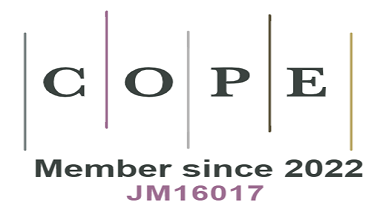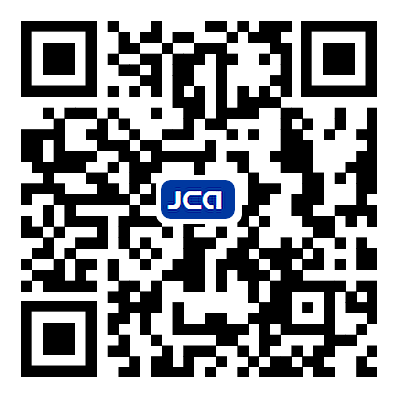Passion in progress: a postdoc's story
Manisha Deogharia is a passionate and dedicated senior postdoc at the University of Texas Health Science Center in Houston, Center for Cardiovascular Genetics [Figure 1], with a background rooted in curiosity and perseverance. Her focus is delineating the role of epigenetics in heart failure, specifically the role of histone demethylases in cardiomyopathies. She recently published her findings in the journal of Cardiovascular Research (CVR) and presented her findings at the IACS-NAS conference in Tampa, FL, for which she received the 2023 Margaret Moffat Outstanding Presentation Award. Manisha’s journey reflects her resilience, love for learning, and commitment to making impactful contributions to the field of science. She graciously shared her inspiring story with us.
Manisha, tell us about your early years and what made you choose to do science.
Born and raised in a small town in West Bengal, India, I initially didn’t consider a career in science due to a lack of mentors, especially female role models. Despite not knowing any scientists, my curiosity led me to conduct experiments, such as studying transpiration with red spinach from our garden. Of course, my mom has been a great support to all my scientific explorations. Moving to the city for college, I chose to major in Microbiology, a decision that transformed my perspective. My passion for science solidified during my Masters at the University of Calcutta, where supportive professors inspired me to explore molecular biology. It was there that I entered the magical world of science, realizing the endless possibilities and confirming my desire to become a scientist.
How did you end up in cardiovascular research?
Until a few years back, I had no idea I would end up doing research in the cardiovascular field. My graduate studies and initial years of postdoc involved studying the functions of non-coding RNA. I certainly enjoyed working on the questions of basic biochemistry with a lot of in vitro work. However, I realized that I wanted to use these skills to answer more clinically relevant questions. When I was exploring such opportunities, I found a position in my current mentor’s lab and immediately jumped on it.
Was the transition easy for you?
Transitioning was challenging as I had to learn various techniques, from handling mice to understanding basic heart functions. Fortunately, Dr. Gurha at the Center of Cardiovascular Genetics provided invaluable support, guiding me through the process. Initially unfamiliar with mouse handling, I overcame my apprehensions through hands-on experience. Despite the initial unfamiliarity with proteins and settings, the overarching goal of studying mechanisms and functions remained constant. Over the past three years, my expertise in molecular biology, gained during my Ph.D., proved beneficial. This journey has enhanced my adaptability to learning, making me more open to high-risk, high-reward experiments. In the dynamic field of science, incorporating new technologies is crucial, and our collaborative approach ensures that we leverage both new and traditional methods to address scientific inquiries effectively.
What do you draw your motivation from?
I love the sheer joy of getting good conclusive data. Over the years, my mentors have taught me that any piece of data, regardless of size, is valuable and impactful. The prospect that what I do in the lab could benefit society fuels my motivation. In addition, I love mentoring young people in the lab. I feel motivated when I see the excitement in their eyes when they learn about my work and see cardiomyocytes beating in a plate.
Balancing personal life with work is a challenge. How do you manage to strike a balance?
I think it’s important to find time just for yourself, and I take regular breaks out of the lab and go on vacations. I try to keep my weekends free from lab work. I do like going to the lab for a quick experiment or taking care of my cell babies over the weekend, but I never plan anything big unless it’s close to a deadline. I enjoy cooking and baking, and I am a big foodie. I love exploring new restaurants and coffee shops in and around the city. I feel taking a break from work is extremely important to keep oneself sane.
What are your future goals?
I aspire to persist in research, driven by my passion for science. At this career stage, I’m uncertain whether I will continue research in academia or transition to a role as a scientist in the Research and Development sector within an industrial setting. Regardless, my commitment to advancing science remains strong. Challenges related to funding, particularly for individuals with immigrant visas in the later stages of postdoctoral training, make securing positions as independent investigators in academia challenging, narrowing our options.
What will be your advice to your younger self?
I would advise my younger self to have confidence in the generated data and believe in its validity. Approach existing literature with caution, recognizing that not all data can be easily replicated. Additionally, I would emphasize the importance of thorough reading and careful experiment planning before implementation. Following the path of your data can lead you closer to answering your scientific questions.
You said you love training young people. Do you have any advice for them?
Primarily, I emphasize two key points. First, choose to pursue what you love and dedicate yourself sincerely to it. Second, never lose your curiosity. I often stress the importance of genuine passion in scientific endeavors. If there comes a day when waking up and coming to the lab feels uninspiring for consecutive days, it’s a signal to reconsider and explore other avenues.
DECLARATIONS
Authors’ contributions
The author contributed solely to the article.
Availability of data and materials
Not applicable.
Financial support and sponsorship
None.
Conflicts of interest
Rouhi L is Editorial Board Member of The Journal of Cardiovascular Aging.
Ethical approval and consent to participate
Not applicable.
Consent for publication
Not applicable.
Copyright
© The Author(s) 2024.
Cite This Article
Export citation file: BibTeX | RIS
OAE Style
Rouhi L. Passion in progress: a postdoc's story. J Cardiovasc Aging 2024;4:14. http://dx.doi.org/10.20517/jca.2024.04
AMA Style
Rouhi L. Passion in progress: a postdoc's story. The Journal of Cardiovascular Aging. 2024; 4(2): 14. http://dx.doi.org/10.20517/jca.2024.04
Chicago/Turabian Style
Rouhi, Leila. 2024. "Passion in progress: a postdoc's story" The Journal of Cardiovascular Aging. 4, no.2: 14. http://dx.doi.org/10.20517/jca.2024.04
ACS Style
Rouhi, L. Passion in progress: a postdoc's story. J. Cardiovasc. Aging. 2024, 4, 14. http://dx.doi.org/10.20517/jca.2024.04
About This Article
Copyright
Data & Comments
Data

 Cite This Article 0 clicks
Cite This Article 0 clicks













Comments
Comments must be written in English. Spam, offensive content, impersonation, and private information will not be permitted. If any comment is reported and identified as inappropriate content by OAE staff, the comment will be removed without notice. If you have any queries or need any help, please contact us at support@oaepublish.com.